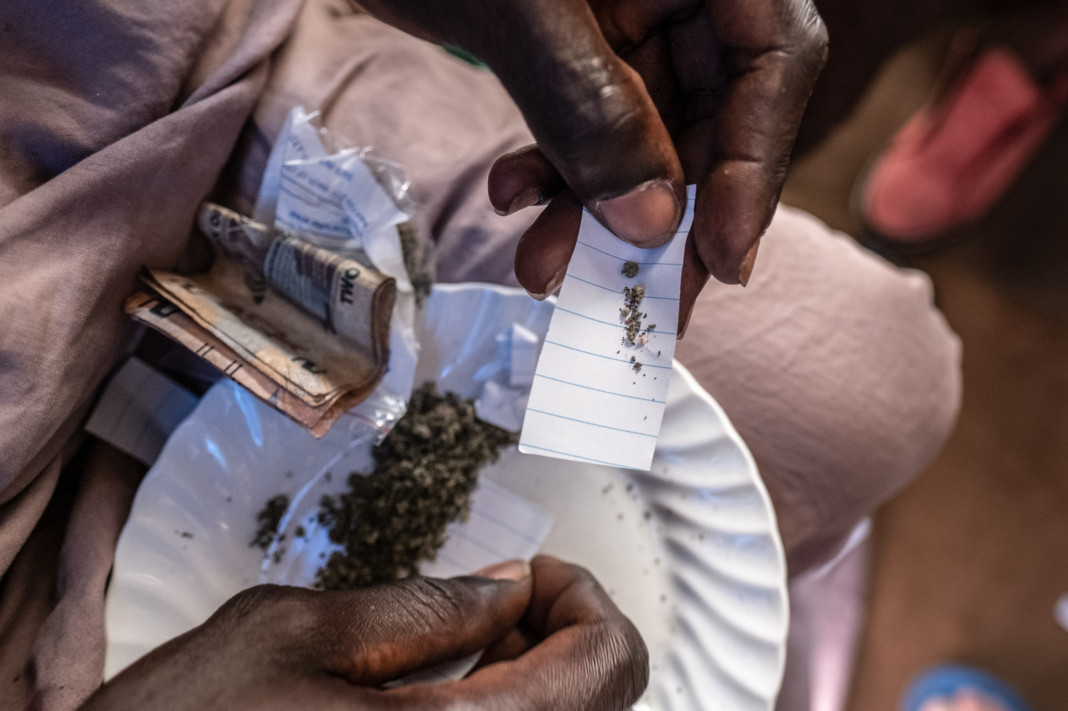The spread of kush, a synthetic drug ravaging Sierra Leone’s young population, has reached alarming levels. What began as a seemingly isolated problem among a few individuals has grown into a nationwide crisis, gripping communities across all four regions and devastating homes, families, and futures.
Initially, cases of kush abuse were treated as rumours. When a person began behaving erratically, neighbours would whisper that the victim had taken drugs. Few paid serious attention, and many dismissed it as another social fad. But, like the slow infiltration described in Chinua Achebe’s Things Fall Apart, what started as a joke soon became an existential threat.
The drug’s spread has been insidious — moving quietly from one youth to another, from schoolmates and friends to entire communities. In schools, students share it during breaks. Among labourers, it is used to boost strength and endurance. What began as experimentation has now become widespread addiction among both boys and girls.
Many young women, initially introduced to kush by boyfriends or partners, have become addicts themselves. Others fall into it through peer influence or cohabitation with addicted men. One pregnant woman, appearing well-kept and polite, once sought financial help from residents in a Freetown neighbourhood. Only later did locals reveal she was a known kush user. Her story, like many others, illustrates how the addiction cuts across gender, age, and social status.
The effects are particularly devastating for women. Many have been abandoned by partners who become addicted and leave home, forcing mothers to raise children alone. “My husband used to be a loving father,” said one bread seller in tears. “Now he lives with his kush friends. When he comes home, he beats me.”
Across Sierra Leone, countless women share similar stories. Families are disintegrating. Parents are losing control of children who steal household items — even the most trivial — to fund their next dose. Some young women are reportedly coerced into sex or impregnated in exchange for kush. Both wealthy and poor families have been affected, and many students have dropped out of school, losing their sense of purpose and belonging.
As the crisis deepened, communities began mobilising. Chiefs and local leaders introduced by-laws banning the sale and use of kush in their areas. Youth groups were formed to act as watchdogs, exposing dealers and users. Some areas even established small rehabilitation centres, offering counselling and treatment to addicts.
Despite these efforts, kush continues to flow into the country. Authorities have made several arrests and seizures, with police regularly displaying confiscated consignments on national television. Yet the scale of the problem suggests systemic weaknesses in enforcement and coordination.
“The key question remains: how is this drug entering our country?” asks one local activist. “And how committed are the authorities to stopping it?”
Critics say the police alone cannot tackle the problem without greater state support. They call for a more comprehensive approach that includes the Ministry of Youth Affairs, the National Youth Commission, and the Anti-Drugs Agency. These institutions, they argue, must review their mandates and work closely with communities to identify vulnerable youths, provide rehabilitation, and promote awareness.
There are also calls for the government to invest in education, job creation, and youth engagement programmes, which many believe could reduce the lure of drugs among unemployed young people.
Until the roots of the crisis are addressed — from weak enforcement to lack of rehabilitation support — Sierra Leone risks losing an entire generation to addiction.
“The future of this nation depends on its young people,” says one concerned teacher. “But if kush continues to destroy them, there will be no future to protect.”
By DMans



